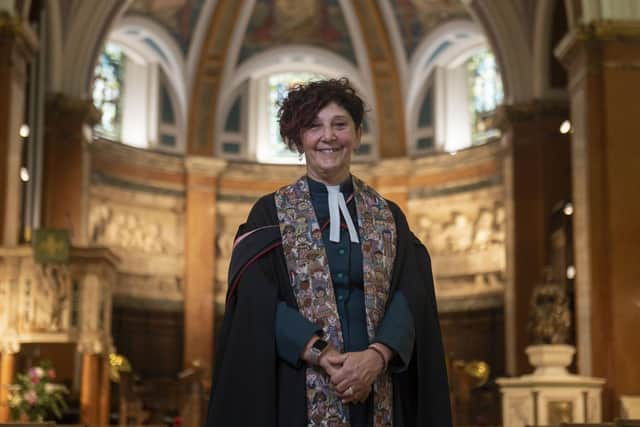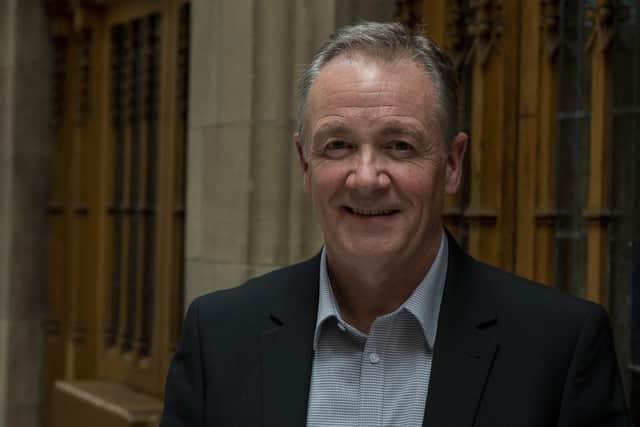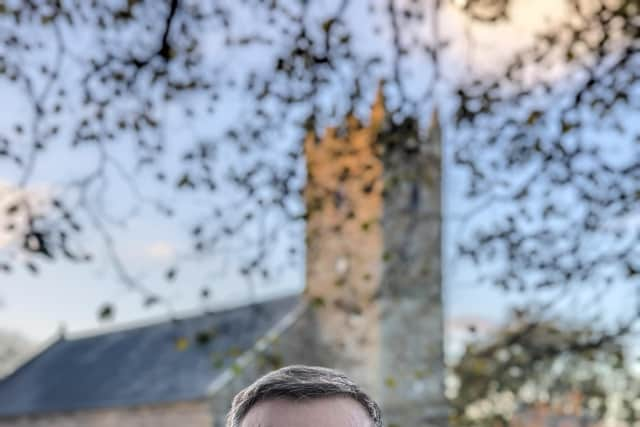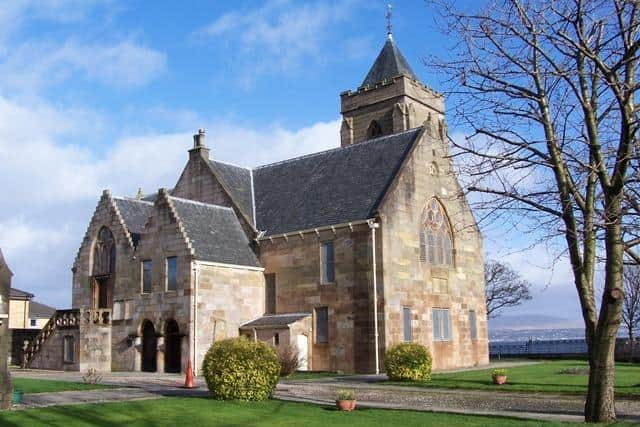Church closures are painful but essential, says Kirk moderator
It has been described as an existential crisis for the Kirk. Across Scotland, hundreds of churches are expected to close in the coming years.
A radical restructuring of the nation’s largest denomination is taking place against a backdrop of falling memberships and tight finances.
Advertisement
Hide AdAdvertisement
Hide AdBut the Rt Rev Sally Foster-Fulton, moderator of the Church of Scotland's General Assembly, insists the "painful" process is also a chance to look to the future.


"It's a challenge, but it's also a real opportunity to reimagine ourselves and the Church of Scotland, and to let go of some of the baggage that's held us down," she said, speaking to The Scotsman at her official residence in Edinburgh’s West End.
"And too many buildings is an energy-sapper. It's a lot of energy to maintain a building, and if you don't need it, and you can come together and work more effectively, why wouldn't you? To embrace the challenges is something I'm keen we do. Not to deny them – not ever to deny them, because I think that's naive, but also not to let that direct our fear."
Membership of the Kirk has fallen from 1.3 million in the late 1950s to around 283,600, with only around 60,000 regularly attending worship on a Sunday. But Ms Foster-Fulton said there had never been a “heyday” for the church. Challenges have always existed.
She also argued the Church of Scotland’s history means it simply has too many buildings. After the Disruption of 1843, the newly-formed Free Church of Scotland, which had broken away from the Kirk, set about building its own infrastructure. Much of this then passed to the Church of Scotland when the schism was largely healed.


"I do know, going back and looking at our history, that post the Disruption, when the churches came back together, we had double the buildings that we need,” Ms Foster-Fulton said. “We have a lot of church buildings. So you've got to put that in perspective. We're not talking about a space where we were struggling to have places before – we have too many; we always have."
Scotland’s Churches Trust fears as many as 700 could close by the end of this decade. “We estimate that between 350 and 400 buildings will close over the next few years,” the charity’s director, Dr DJ Johnston-Smith, told The Scotsman in November. “That’s what we can extract from presbytery plans that have been published or that have been leaked to us. But as well as that, we expect a similar number will close by the end of the decade. So across all denominations, we’re looking at 700 churches closing by 2030. That’s a massive change for the country.”
Ms Foster-Fulton, who took a sabbatical from her role as the head of Christian Aid to take on the 12-month moderator position, argues there is a difference between buildings closing and churches closing.
Advertisement
Hide AdAdvertisement
Hide Ad"What I would also say, though, is I think it's important that we make sure that where those buildings have been and are community assets, and community spaces, that they are reimagined respectfully and we look for ways to make sure that they continue to be an asset in that community,” she added.


"If it's a community hub, then we want to make sure if at all possible it remains that way, and look for imaginative ways to breathe life into those buildings.
"So, absolutely, is it a challenge? Of course it is. Is it painful for people whose church life has been surrounded by that physical space? Yes, it is.
"But I think we also are pragmatic enough to realise that if we are going to continue to make an impact in the communities we serve, that we have to address the number of buildings. We have to address the energy, the finance, the carbon footprint that those buildings represent, and do that honestly and effectively and transparently. And it is something that we have not addressed early enough and so we're having to do it. It's a tough call, but it's essential that we do it."
Many fear the closure of churches will lead to the loss of vital community space for groups such as the Scouts, the Boys’ Brigade and Alcoholics Anonymous. But Ms Foster-Fulton said decisions are not being taken in a vacuum.


"Those conversations are happening, so that people feel they've got ownership of that space,” she said. “It isn't just being done in a vacuum. Making sure the buildings that are those community spaces, that are fit for purpose, that are engaging, are the ones we retain. That the ones that can be used as different community spaces, that that opportunity is explored thoroughly."
It’s about making the Church of Scotland “fit for purpose, ready to continue to do what we do”, she said.
The Kirk is also struggling with a shortage of ministers. Ms Foster-Fulton suggested more flexibility could help tackle this. “The model has been, for a long, long time, full-time, ordained clergy,” she said. “What we’re looking at now are different ways that people can serve.”
Advertisement
Hide AdAdvertisement
Hide AdThe moderator said: "We are facing a very challenging time everywhere, and the church is not immune. I think those challenges mean we need to be more determined, because what we're here for is service, and we have a lot to offer.”
Comments
Want to join the conversation? Please or to comment on this article.
